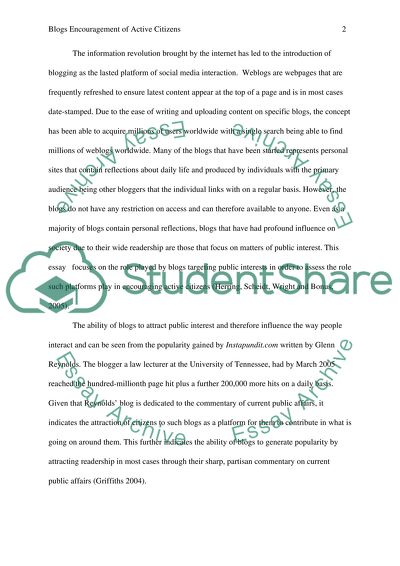Cite this document
(“To what extend can it be argued that blogs encourage active citizens Essay”, n.d.)
To what extend can it be argued that blogs encourage active citizens Essay. Retrieved from https://studentshare.org/journalism-communication/1632133-to-what-extend-can-it-be-argued-that-blogs-encourage-active-citizens
To what extend can it be argued that blogs encourage active citizens Essay. Retrieved from https://studentshare.org/journalism-communication/1632133-to-what-extend-can-it-be-argued-that-blogs-encourage-active-citizens
(To What Extend Can It Be Argued That Blogs Encourage Active Citizens Essay)
To What Extend Can It Be Argued That Blogs Encourage Active Citizens Essay. https://studentshare.org/journalism-communication/1632133-to-what-extend-can-it-be-argued-that-blogs-encourage-active-citizens.
To What Extend Can It Be Argued That Blogs Encourage Active Citizens Essay. https://studentshare.org/journalism-communication/1632133-to-what-extend-can-it-be-argued-that-blogs-encourage-active-citizens.
“To What Extend Can It Be Argued That Blogs Encourage Active Citizens Essay”, n.d. https://studentshare.org/journalism-communication/1632133-to-what-extend-can-it-be-argued-that-blogs-encourage-active-citizens.


